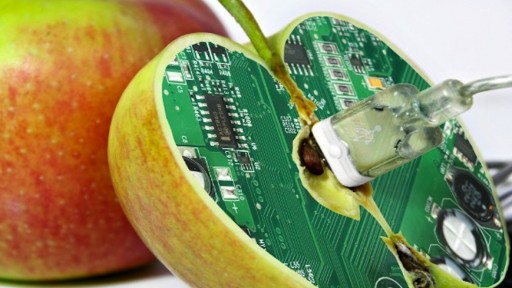
5 facts about GMO and who stays behind?

1 What are GMO crops?
They are plants or animals that have had their genes altered to provide some benefits. Using genes from bacteria, viruses and other plants, crops like corn and soybeans can be given the ability to survive weed-killing sprays, produce proteins that kill cotton-destroying worms and beetles, or enable corn stalks to thrive in dry conditions.
2 How are GMO crops made?
Beneficial genes are transferred into plant cells using a soil bacterium, Agrobacterium tumefaciens, which can produce tumor-like growths in plants and has the ability to alter plants’ DNA, providing a vehicle for commercially valuable crop genes. Another method of transferring genes involves using a “gene gun” to blast cells with particles that carry the desired gene.
3 Why are GMO crops attractive?
For farmers, they prevent pests from killing plants and help save money on additional sprays. Monsanto Co., DuPont Co., Syngenta AG, Bayer AG and Dow Chemical Co. spend tens of millions of dollars developing genetically modified crops, charge a premium for the seeds and protect their investments with patents.
4 Are GMOs safe to eat?
The U.S. Food and Drug Administration, which regulates food made from genetically engineered plants, has deemed them safe to eat. Such products are held to the same safety standards as all other food. Companies developing GMO plants research their safety for consumption and submit the data for FDA review, a process the FDA says is voluntary but obligatory, as the FDA holds authority over any food made from genetically engineered plants. Critics, such as the Center for Food Safety and the Consumers Union, say food made from GMOs should face compulsory and deeper reviews, more along the lines of pharmaceuticals.
5 Which crops are grown in the U.S.?
Corn, soybeans and cotton are the most widely grown genetically engineered crops on U.S. farms. The U.S. Department of Agriculture, which regulates GMO crops, approved genetically modified varieties of alfalfa, canola, sugar beets, squash and papayas. Regulators last year blessed genetically engineered potatoes, apples, and a salmon that grows faster than conventional versions and represented the first biotech animal cleared for human consumption.
 Varchev Traders
Varchev Traders If you think, we can improve that section,
please comment. Your oppinion is imortant for us.






